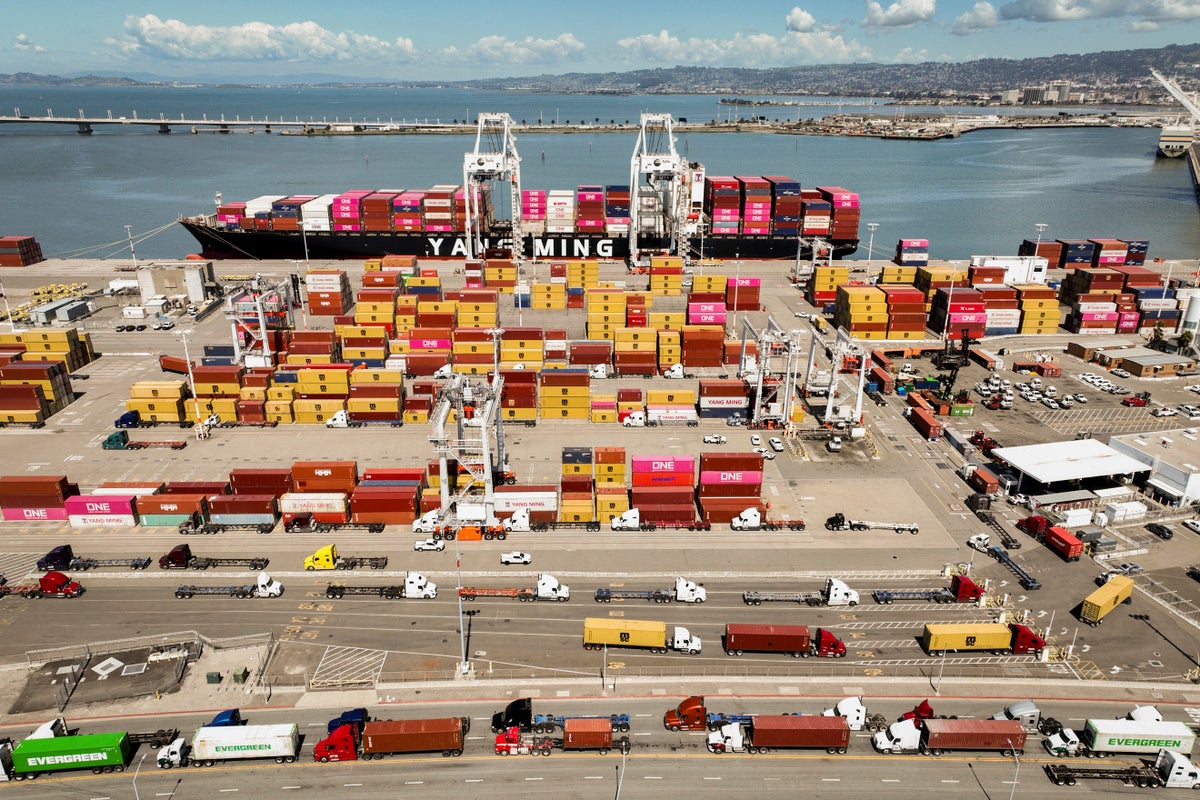By Lindsay Whitehurst and Christina A. Cassidy | Associated PressWASHINGTON — Democratic officials in 19 states filed a lawsuit Thursday against President Donald Trump’s attempt to reshape elections across the U.S.
, calling it an unconstitutional invasion of states’ clear authority to run their own elections.The lawsuit is the fourth against the executive order issued just a week ago. It seeks to block key aspects of it, including new requirements that people provide documentary proof of citizenship when registering to vote and a demand that all mail ballots be received by Election Day.

“The President has no power to do any of this,” the state attorneys general wrote in court documents. “The Elections EO is unconstitutional, antidemocratic, and un-American.”Trump’s order said the U.
S. has failed “to enforce basic and necessary election protection.” Election officials have said recent elections have been among the most secure in U.
S. history. There has been no indication of any widespread fraud, including when Trump lost to Democrat Joe Biden in 2020.
“Day after day, we continue to witness President Trump’s utter disdain for the rule of law. Let me remind him: He is not a king,” said California Attorney General Rob Bonta. “When he took office, he swore to ‘preserve, protect and defend the Constitution of the United States.
’ He also has a constitutional obligation to ‘take care that the laws be faithfully executed,’ and that doesn’t involve rewriting them however he sees fit.”The order is the culmination of Trump’s longstanding complaints about how U.S.
elections are run. After his first win in 2016, Trump falsely claimed his popular vote total would have been much higher if not for “millions of people who voted illegally.” In 2020, Trump blamed a “rigged” election for his loss and falsely claimed widespread voter fraud and manipulation of voting machines.
Trump has argued his order secures the vote against illegal voting by noncitizens, though multiple studies and investigations in the states have shown that it’s rare.It has received praise from the top election officials in some Republican states who say it could inhibit instances of voter fraud and will give them access to federal data to better maintain their voter rolls.The order also requires states to exclude any mail-in or absentee ballots received after Election Day, and puts states’ federal funding at risk if election officials don’t comply.
Some states count ballots as long as they are postmarked by Election Day or allow voters to correct minor errors on their ballots.Forcing states to change, the suit says, would violate the broad authority the Constitution gives states to set their own election rules. It says they decide the “times, places and manner” of how elections are run.
Congress has the power to “make or alter” election regulations, at least for federal office, but the Constitution doesn’t mention any presidential authority over election administration.“We are a democracy – not a monarchy – and this executive order is an authoritarian power grab,” said New York Attorney General Letitia James.A request sent to the White House was not immediately returned.
Related ArticlesBay Area students protest Trump’s crackdown on pro-Palestine movementPentagon watchdog to review Hegseth’s use of Signal app to convey plans for Houthi strikeScientists sue NIH, saying politics cut their research fundingK-12 schools must sign certification against DEI to receive federal money, Trump administration saysTrump fires NSC officials a day after far-right activist raises concerns to him about staff loyaltyThe lawsuit was filed in U.S. District Court in Massachusetts by the Democratic attorneys general of Arizona, California, Colorado, Connecticut, Delaware, Hawaii, Illinois, Maine, Maryland, Massachusetts, Michigan, Minnesota, Nevada, New Jersey, New Mexico, New York, Rhode Island, Vermont and Wisconsin.
Other lawsuits filed over the order argue it could disenfranchise voters because millions of eligible voting-age Americans do not have the proper documents readily available. People are already required to attest to being citizens, under penalty of perjury, in order to vote.Under the order, documents acceptable to prove citizenship would be a U.
S. passport, a REAL ID-compliant driver’s license that “indicates the applicant is a citizen,” and a valid photo ID as long as it is presented with proof of citizenship.Democrats argue that millions of Americans do not have easy access to their birth certificates, about half don’t have a U.
S. passport, and married women would need multiple documents if they had changed their name. That was a complication for some women during recent town elections in New Hampshire, the first ones held under a new state law requiring proof of citizenship to register.
Not all REAL ID-compliant driver’s licenses designate U.S. citizenship.
.
Politics

California among 19 states suing to block Trump election order, calling it unconstitutional

The suit seeks to block new requirements that people provide documentary proof of citizenship when registering to vote and a demand that all mail ballots be received by Election Day.















